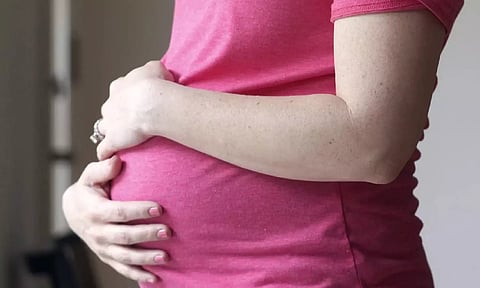

CHENNAI: A recent study by Climate Central, an NGO focusing on climate research, underscores a dire consequence of global warming: a sharp rise in dangerously hot days for pregnant women, significantly elevating health risks for both mothers and infants.
The analysis reveals that climate change has doubled the number of pregnancy heat-risk days in 90% of the 247 countries studied and 63% of cities worldwide over the past five years. These “heat-risk days” occur when temperatures exceed 95% of historical local highs—a threshold linked to preterm births and maternal complications.
The research examined daily temperatures from 2020 to 2024 across 247 nations and 940 cities, focusing on days surpassing the critical heat threshold. Using the Climate Shift Index (CSI), scientists calculated how many such days would have occurred without human-driven climate change.
The findings were stark: every country analysed saw an uptick in heat-risk days directly tied to fossil fuel emissions. Preterm birth risks, associated with lifelong health challenges for children and postpartum complications for mothers, were a central concern.
Extreme heat exacerbates multiple pregnancy-related dangers, including hypertension, gestational diabetes, stillbirth, and maternal hospitalisation. Prolonged exposure can cause dehydration and electrolyte imbalances, jeopardising foetal development.
Dr Sumathi Chandran, director, Chennai’s Institute of Obstetrics and Gynaecology, warns that “first-trimester heat exposure may trigger severe vomiting, while later stages risk foetal death”.
“Post-delivery, mothers remain vulnerable to heatstroke and conditions like deep vein thrombosis (DVT),” notes gynaecologist Dr Arvindh Santhosh.
“Climate change is stacking the odds against healthy pregnancies,” emphasises Dr Kristina Dahl, Climate Central’s VP for science. “Even a single day of extreme heat can heighten risks, underscoring the urgency of adaptive measures.”
The crisis disproportionately affects outdoor labourers, such as construction workers, who face prolonged sun exposure. Regions with limited healthcare access are particularly at risk, as complications demand urgent medical intervention.
The study links rising heatwaves unequivocally to fossil fuel consumption. Dr Bruce Bekkar, a women’s health specialist from USA, stresses that reducing emissions is vital to safeguarding maternal and infant health. “This isn’t just an environmental issue—it’s a public health emergency,” Climate Central quoted him saying in a press release. “Without swift action, healthcare systems in vulnerable regions may buckle under escalating demand.”
Doctors advise pregnant women to prioritise hydration, avoid peak heat, and monitor for heat-related symptoms. Policymakers are urged to bolster healthcare infrastructure and implement workplace protections for high-risk groups. However, experts agree that long-term solutions require systemic changes: transitioning to renewable energy, curbing emissions, and integrating climate resilience into public health planning.
As global temperatures climb, the study serves as a grim reminder of climate change’s human toll. Protecting maternal and infant health demands immediate, coordinated efforts to mitigate warming and address its inequitable impacts. The clock is ticking, and the stakes—for future generations and global health—could not be higher.